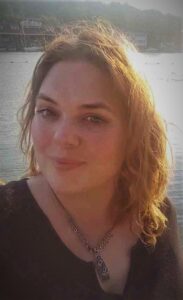Representation Matters: Representative Ellen Read
 NH Representative Ellen Read
NH Representative Ellen Read This is part of theHumanist.com’s monthly series highlighting openly nonreligious elected officials across the nation. Because of the work of the Center for Freethought Equality, the political and advocacy arm of the American Humanist Association, there are over 100 elected officials at the local, state, and federal level who identify with the atheist and humanist community serving in thirty-two states across the country. Join the Center for Freethought Equality to help politically empower the atheist and humanist community—membership is FREE!
The Center for Freethought Equality’s advances have been groundbreaking. Prior to the 2016 election, there were only five state legislators and no members of Congress who publicly identified with our community; because of its efforts, today we have seventy-three state legislators and a member of Congress, Jared Huffman (CA-2), who publicly identify with our community. It is critical that our community connect and engage with the elected officials who represent our community and our values—you can see a list of these elected officials here.
Representative Ellen Read
Representing Rockingham, New Hampshire’s 10th House District
“As a humanist, decreasing human suffering—and indeed by extension all suffering—is my primary motivator.”
Representative Ellen Read was first elected to the New Hampshire legislature in 2016. She serves on the Fish and Game and Marine Resources Committee, which considers all legislation and matters pertaining to conservation, improvement and preservation of fish, game, and non-game species and marine resources within the state.
Read received her Master’s Degree in Environmental and Socioeconomic Ethics and Policy from the University of New Hampshire, and a Bachelor of Science in Molecular and Cellular Biology from Vanderbilt University, with a double minor in Religious Studies and Japanese. A longtime activist in her community, she has worked as a community organizer and manager in local nonprofits on a variety of issues, including animal rights, getting money out of politics and restoring transparent and fair elections. In 2019, she successfully advocated for a bill that made New Hampshire the 20th state to call for an end to the Citizens United Supreme Court decision. Rep. Read has received multiple honors recognizing her dedicated activism and service, including from Voices of Wildlife and the Humane Society.
Read has lived in New Hampshire for the past fourteen years, and currently resides in Newmarket with her husband, their three cats and two rescue parrots. She enjoys animals, logic, and chai.
Sarah Levin: What motivated you to run for office?
Ellen Read: I had long been an activist. I earned my degree in molecular biology with the larger idea in mind that science would save us from our troubles as a society. However, after graduating, my naivete melted away, and I realized that the bottleneck in our progress was not our scientific understanding but political will. And in particular, the fact that power didn’t listen to the truth that spoke to it, but instead listened to its own self-interest. As an activist I had caught the attention of politically active locals, who eventually asked me to run. Since all my work had been around persuading elected officials to act a certain way, I thought it would be far easier to simply be the elected official. After seven years I can’t say it’s easier, but it remains a more direct way to make an impact.
Levin: What are your policy priorities and how does your nonreligious worldview impact your policy platform?
Read: Most of my work has been on democracy reform issues (ending things like money in politics and gerrymandering), economic justice (housing, labor, etc.), environmental and animal rights issues. My campaign slogan reflects this: “People, Planet, Principles.” As a humanist, decreasing human suffering—and indeed by extension, all suffering—is my primary motivator. Further, as someone who believes in Enlightenment principles, I exclusively believe in pursuing pure reason and logic as the method to reach those ends, even though politics rarely follows such methodology. But I believe it should, and I remind my fellow legislators of this ideal. We should not become complacent with the business-as-usual power games that usually determine outcomes. Most importantly, the belief in the wall of separation—between not only church, but any personal belief not rooted in true logic and scientific method—and state, including all the methods by which we engage in self-governance, is of the utmost importance.
Levin: Why was it important for you to be open about your nonreligious identity?
Read: Because it is not enough to be silent and allow us to slide backwards. We must consistently remind each other of the ideals that our whole government was founded upon (none of which was religion). To be closeted about secularism is to condone archaic, superstitious, power-serving, and backwards beliefs that lead to suffering.
Levin: How did voters respond (if at all) to your openness about your nonreligious identity?
Read: I haven’t had any pushback from constituents who engage with me. My beliefs are generally very representative of my district, but I do suspect there are a number who are highly disapproving. Further, I’ve received letters and emails from religious zealots who are not my constituents. None were threatening, but clearly disapproving, and many included religious trinkets—I presume meant to purify me or magically control my behavior or beliefs.
To learn more about Representative Ellen Read:
